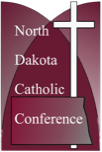
To: Senate Judiciary Committee
From: Christopher Dodson, Executive Director
Subject: House Bill 1136 -Religious Freedom
Date: March 22, 2023
The North Dakota Catholic Conference supports House Bill 1136 to establish a compelling interest test for the protection of religious freedom for all North Dakotans.
Twenty-four states have adopted this standard for religious liberty cases. State courts have adopted this standard in nine additional states. Congress has applied the compelling interest test to all federal laws, the District of Columbia, and all U.S. territories. North Dakota clearly falls short when it comes to protecting religious freedom compared to other states and the federal government. The absence of a compelling interest test is one reason North Dakota was recently ranked 37th among the states when it came to protecting religious liberty.
House Bill 1136 will rectify that deficiency by ensuring that government entities cannot substantially burden a person’s exercise of religion unless the government entity has a compelling governmental interest and uses the least restrictive means of furthering that interest.
This compelling interest test is set out on lines 7 through 11 of the bill. This language is the same that is used for the federal Religious Freedom Restoration Act and most similar statutes.
It is also the same language that this legislative body enacted in 2021 to protect the religious freedom of institutionalized individuals, such as inmates, and all persons during a health emergency. House Bill 1136, therefore, extends to all North Dakotans the same religious freedom protections that inmates in our correctional facilities already have.
The compelling interest test works like this:
- Substantial Burden: Does the individual have a sincere religious belief that is being substantially burdened by government action?
No – Individual loses. Case closed.
Yes – The case moves forward.
- Compelling Interest: Does the Government have a very good reason (e.g. health or safety) to interfere?
No – Individual wins. Case closed.
Yes – The case moves forward.
- Least Restrictive Means: Is there a reasonable alternative the government could use to serve the public interest at issue, without interfering with the religious belief?
No – Individual loses. Case closed.
Yes – Individual wins. Case closed.
What would happen without HB 1136?
Substantial Burden: Does the individual have a sincere religious belief that is being substantially burdened by government action?
No – Individual loses. Case closed.
Yes – Individual likely loses. Case closed.
The individual loses because without the compelling interest test religious freedom is protected only if the law targets a specific religious practice or applies only to religion or religious practice, something that rarely happens.
The language on lines 12 through 15 codifies the principle that the government cannot treat religious activity more severely than comparable secular activity unless it can show that the religious activity poses a greater risk. This principle is in line with several U.S. Supreme Court cases and is included more recently adopted state compelling interest test laws.
If it looks familiar, that is because it also was part of the 2021 law. Here again, HB 1136 merely extends the same religious freedom protections that the state already provides to inmates to all North Dakotans.
House Bill 1136 is about protecting religious freedom for all North Dakotans of all faiths, now and in the future. Religious freedom is one of our fundamental human rights, built into who we are as human persons. It is also one of our nation’s founding principles. The compelling interest test reflects these truths. The time has come for North Dakota to adopt it by passing HB 1136.
We urge a Do Pass recommendation on HB 1136.
1. Religious Liberty in the States 2022; Center for Religion, Culture, and Democracy https://religiouslibertyinthestates.com/
2. “Compelling interest test” is also called the “strict scrutiny” standard.
3. See 42 U.S. Code § 2000bb et seq.
4. Contrary to some public opinion, religious freedom is not protected at the highest constitutional level as other First Amendment rights. In Employment Division v. Smith, 494 U.S. 872 (1990), the U.S. Supreme Court held that if a law is facially neutral toward religion and applies to everyone, the lowest standard of review, known as the rational basis test, applies. For this reason, Congress and states began enacting “religious freedom restoration acts” to restore the compelling interest standard.
What We Do
The North Dakota Catholic Conference acts on behalf of the Roman Catholic bishops of North Dakota to respond to public policy issues of concern to the Catholic Church and to educate Catholics and the general public about Catholic social doctrine.

Contact Us
North Dakota Catholic Conference
103 South Third Street, Suite 10
Bismarck, North Dakota
58501
1-888-419-1237
701-223-2519
Contact Us

